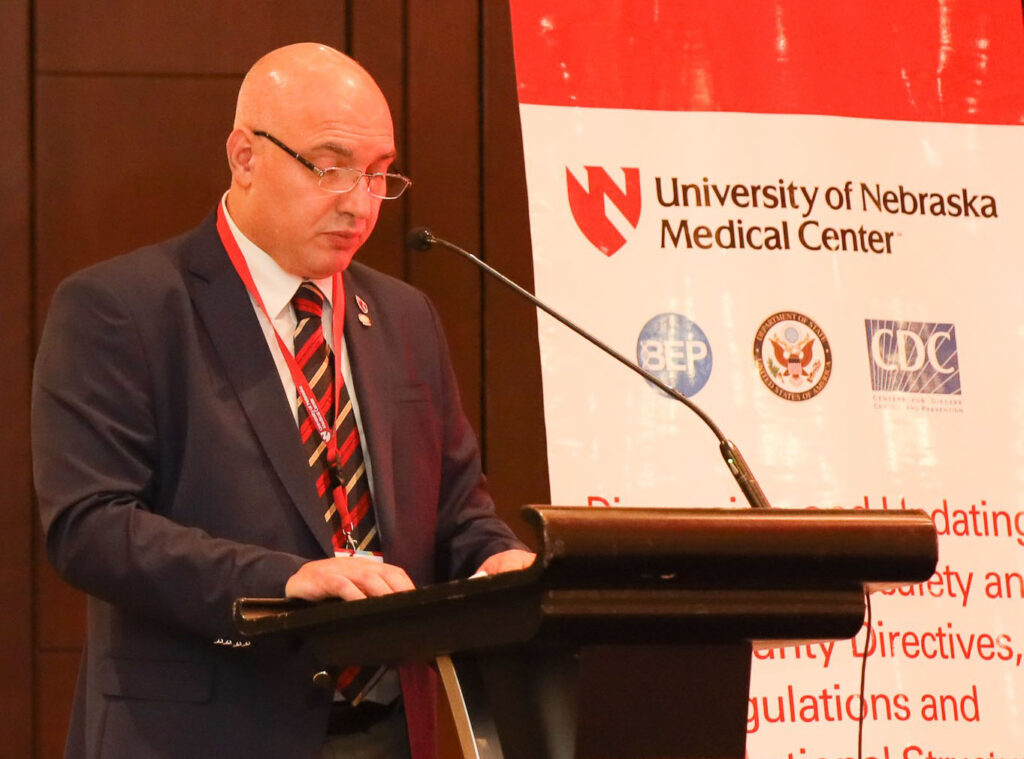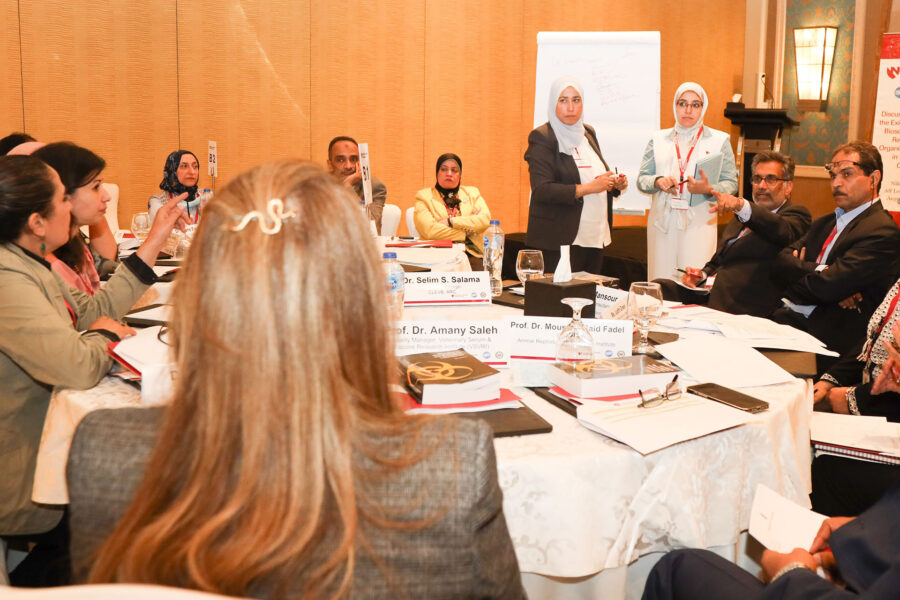Members of the UNMC College of Public Health and the U.S. Centers for Disease Control and Prevention Division of Select Agents and Toxins led a three-day workshop in Cairo, Egypt, in August.
It focused on discussing and updating the existing biosafety and biosecurity directives, regulations, and organizational structure in the Egyptian civil sector. More than 60 senior Egyptian officials attended.
UNMC and College of Public Health officials, along with numerous partners, attended the first-of-its-kind workshop. It will serve as a model for the Middle East and North Africa (MENA) region to improve laboratory biosafety and biosecurity in an effort to prevent the diversion or release of dangerous microbes and the creation of new pathogens.

The project has been funded by the U.S. State Department since 2019. In preparation for the workshop, the UNMC team, including members in Egypt, translated into Arabic the three U.S. Federal Select Agents and Toxins Codes for Animal, Plant and Public Health, including adding a gain-of-function addendum and developing a comprehensive report and analysis of all the Egyptian laws, presidential and ministerial decrees that relate to infectious agents and diseases from 1889.
Wael ElRayes, MD, PhD, and Dean Ali Khan, MD, MPH, worked closely with the Egyptian government to organize the workshop. That included working with the ministries of agriculture, higher education and scientific research and health and population, as well as the Egyptian Drug Authority, the Holding Company for Biological Products & Vaccines, Tudor Bilharz Institute and the Egyptian Society for Infection Control.
The lead for the national biological health security from the Ministry of Defense also attended the three-day activities. The workshop was supported by both the WHO Egypt Country Office as well as the WHO regional office.
The workshop drew national attention and was featured on one of the main news outlets in Egypt. Please note, the video is in Arabic. See that segment here:
